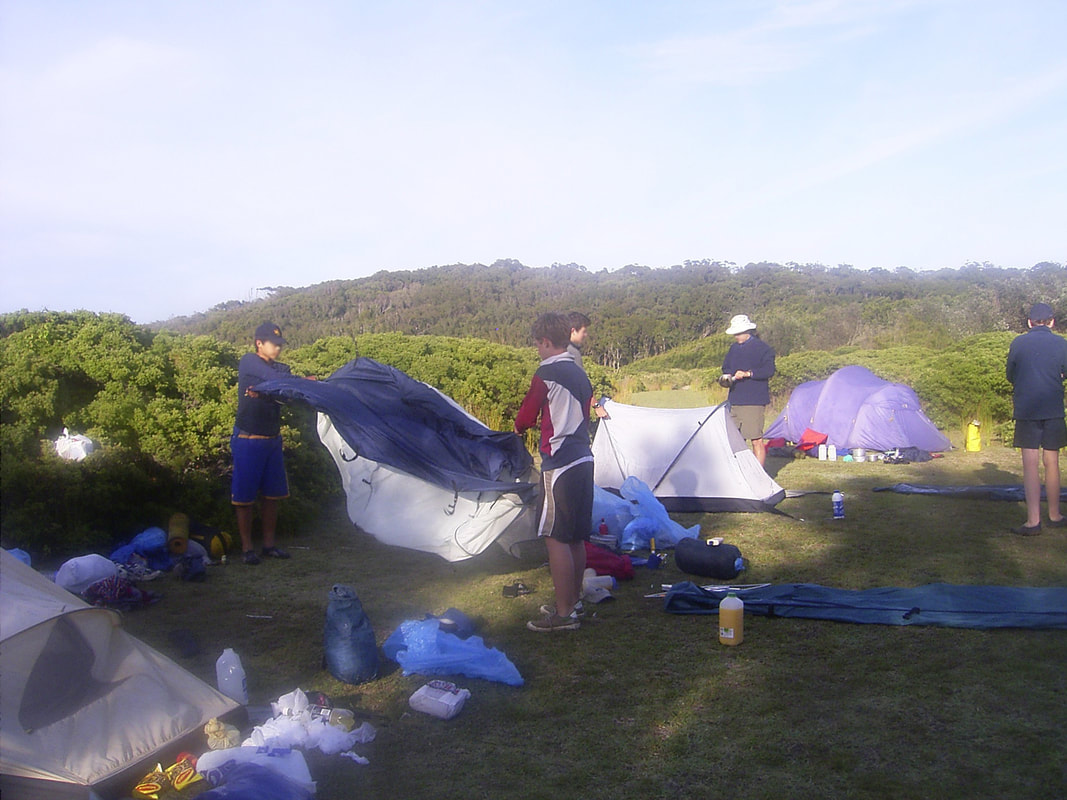|
Just a short one this week about an interesting phenomenon I’ve noticed over the years in outdoor ed programs has been that of clustering. What I mean by this is the group dynamic of needing to be close together when in large open spaces. Whilst there’s nothing wrong with this, it’s interesting to watch how this can change over a longer-term program as students become more comfortable with their surroundings and the natural environment. For students from cities, most of the groups with which I’ve worked, big open spaces tend to be uncomfortable. When it comes to hiking, canoeing and camping, no matter how much space you have, the students tend to need to be very close together, even if they’re not friends.
I started to notice this across a number of canoeing expeditions where we were paddling on quite wide lakes. Whilst you never want a canoe group to be too far away from boats to boat, quite often students will paddle right on top of each other, rather than giving everyone else room to move. The same is true when they’re setting up their tents at the campsite. No matter how large and unoccupied the camp ground, the students tend to cluster together with tents almost on top of each other and rather than use free time to socialise with friends, they often cluster into one large group. This is definitely a very primitive comfort zone issue and the fact that students feel safer in large groups when out in the wilderness. From a management point of view, this is great, as it’s easier to keep track of where everyone is. Just look for the massive group and listen for the noise. However, the problem with this is that as a group they can miss so much about the environment around them. They can miss the opportunity to switch off and just enjoy the peace and quiet of the unique landscapes and environments they will most likely never see again. As I mentioned however, for longer programs, this distance seems to increase. Students feel more comfortable in the environment in which they’re in and as this comfort increases, they don’t need to be as close together to each other as before. They also develop an attitude that it is quite safe and this adds to the de-clustering effect. It’s interesting to watch this transition too as it creates greater moments for reflection and relaxation and opens students’ minds to so much more. It enables them to switch off from a massively connected world. It enables them to focus on the beauty of the world. Students can focus also on how much bigger the world is than just their own lives and their own experiences.
0 Comments
Your comment will be posted after it is approved.
Leave a Reply. |
Categories
All
Archives
April 2021
|

 RSS Feed
RSS Feed